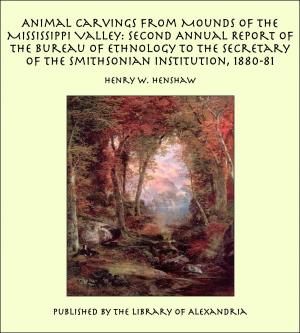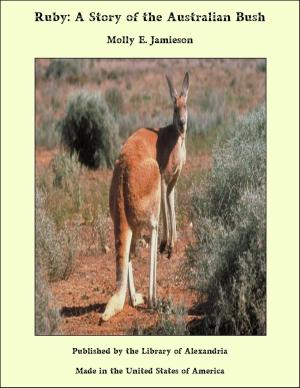| Author: | Ernest William Hornung | ISBN: | 9781465548382 |
| Publisher: | Library of Alexandria | Publication: | March 8, 2015 |
| Imprint: | Language: | English |
| Author: | Ernest William Hornung |
| ISBN: | 9781465548382 |
| Publisher: | Library of Alexandria |
| Publication: | March 8, 2015 |
| Imprint: | |
| Language: | English |
Swift of Wallandoon was visibly distraught. He had driven over to the township in the heat of the afternoon to meet the coach. The coach was just in sight, which meant that it could not arrive for at least half an hour. Yet nothing would induce Swift to wait quietly in the hotel veranda; he paid no sort of attention to the publican who pressed him to do so. The iron roofs of the little township crackled in the sun with a sound as of distant musketry; their sharp-edged shadows lay on the sand like sheets of zinc that might be lifted up in one piece; and a hot wind in full blast played steadily upon Swift's neck and ears. He had pulled up in the shade, and was leaning forward, with his wide-awake tilted over his nose, and his eyes on a cloud of dust between the bellying sand-hills and the dark blue sky. The cloud advanced, revealing from time to time a growing speck. That speck was the coach which Swift had come to meet. He was a young man with broad shoulders and good arms, and a general air of smartness and alacrity about which there could be no mistake. He had dark hair and a fair mustache; his eye was brown and alert; and much wind and sun had reddened a face that commonly gave the impression of complete capability with a sufficiency of force. This afternoon, however, Swift lacked the confident look of the thoroughly capable young man. And he was even younger than he looked; he was young enough to fancy that the owner of Wallandoon, who was a passenger by the approaching coach, had traveled five hundred miles expressly to deprive John Swift of the fine position to which recent good luck had promoted him. He could think of nothing else to bring Mr. Luttrell all the way from Melbourne at the time of year when a sheep station causes least anxiety. The month was April, there had been a fair rainfall since Christmas, and only in his last letter Mr. Luttrell had told Swift that all he need do for the present was to take care of the fences and let the sheep take care of themselves. The next news was a telegram to the effect that Mr. Luttrell was coming up country to see for himself how things were going at Wallandoon. Having stepped into the managership by an accident, and even so merely as a trial man, young Swift at once made sure that his trial was at an end. It did not strike him that in spite of his youth he was the ideal person for the post. Yet this was obvious. He had five years' experience of the station he was to manage. The like merit is not often in the market. Swift seemed to forget that. Neither did he take comfort from the fact that Mr. Luttrell was an old friend of his family in Victoria, and hitherto his own highly satisfied employer. Hitherto, or until the last three months, he had not tried to manage Mr. Luttrell's station. If he had failed in that time to satisfy its owner, then he would at once go elsewhere; but for many things he wished most keenly to stay at Wallandoon; and he was thinking of these things now, while the coach grew before his eyes. Of his five years on Wallandoon the last two had been infinitely less enjoyable than the three that had gone before. There was a simple reason for the difference. Until two years ago Mr. Luttrell had himself managed the station, and had lived there with his wife and family. That had answered fairly well while the family were young, thanks to a competent governess for the girls. But when the girls grew up it became time to make a change. The squatter was a wealthy man, and he could perfectly well afford the substantial house which he had already built for himself in a Melbourne suburb. The social splashing of his wife and daughters after their long seclusion in the wilderness was also easily within his means, if not entirely to his liking; but he was a mild man married to a weak woman; and he happened to be bent on a little splash on his own account in politics. Choosing out of many applicants the best possible manager for Wallandoon, the squatter presently entered the Victorian legislature, and embraced the new interests so heartily that he was nearly two years in discovering his best possible manager to be both a failure and a fraud
Swift of Wallandoon was visibly distraught. He had driven over to the township in the heat of the afternoon to meet the coach. The coach was just in sight, which meant that it could not arrive for at least half an hour. Yet nothing would induce Swift to wait quietly in the hotel veranda; he paid no sort of attention to the publican who pressed him to do so. The iron roofs of the little township crackled in the sun with a sound as of distant musketry; their sharp-edged shadows lay on the sand like sheets of zinc that might be lifted up in one piece; and a hot wind in full blast played steadily upon Swift's neck and ears. He had pulled up in the shade, and was leaning forward, with his wide-awake tilted over his nose, and his eyes on a cloud of dust between the bellying sand-hills and the dark blue sky. The cloud advanced, revealing from time to time a growing speck. That speck was the coach which Swift had come to meet. He was a young man with broad shoulders and good arms, and a general air of smartness and alacrity about which there could be no mistake. He had dark hair and a fair mustache; his eye was brown and alert; and much wind and sun had reddened a face that commonly gave the impression of complete capability with a sufficiency of force. This afternoon, however, Swift lacked the confident look of the thoroughly capable young man. And he was even younger than he looked; he was young enough to fancy that the owner of Wallandoon, who was a passenger by the approaching coach, had traveled five hundred miles expressly to deprive John Swift of the fine position to which recent good luck had promoted him. He could think of nothing else to bring Mr. Luttrell all the way from Melbourne at the time of year when a sheep station causes least anxiety. The month was April, there had been a fair rainfall since Christmas, and only in his last letter Mr. Luttrell had told Swift that all he need do for the present was to take care of the fences and let the sheep take care of themselves. The next news was a telegram to the effect that Mr. Luttrell was coming up country to see for himself how things were going at Wallandoon. Having stepped into the managership by an accident, and even so merely as a trial man, young Swift at once made sure that his trial was at an end. It did not strike him that in spite of his youth he was the ideal person for the post. Yet this was obvious. He had five years' experience of the station he was to manage. The like merit is not often in the market. Swift seemed to forget that. Neither did he take comfort from the fact that Mr. Luttrell was an old friend of his family in Victoria, and hitherto his own highly satisfied employer. Hitherto, or until the last three months, he had not tried to manage Mr. Luttrell's station. If he had failed in that time to satisfy its owner, then he would at once go elsewhere; but for many things he wished most keenly to stay at Wallandoon; and he was thinking of these things now, while the coach grew before his eyes. Of his five years on Wallandoon the last two had been infinitely less enjoyable than the three that had gone before. There was a simple reason for the difference. Until two years ago Mr. Luttrell had himself managed the station, and had lived there with his wife and family. That had answered fairly well while the family were young, thanks to a competent governess for the girls. But when the girls grew up it became time to make a change. The squatter was a wealthy man, and he could perfectly well afford the substantial house which he had already built for himself in a Melbourne suburb. The social splashing of his wife and daughters after their long seclusion in the wilderness was also easily within his means, if not entirely to his liking; but he was a mild man married to a weak woman; and he happened to be bent on a little splash on his own account in politics. Choosing out of many applicants the best possible manager for Wallandoon, the squatter presently entered the Victorian legislature, and embraced the new interests so heartily that he was nearly two years in discovering his best possible manager to be both a failure and a fraud















